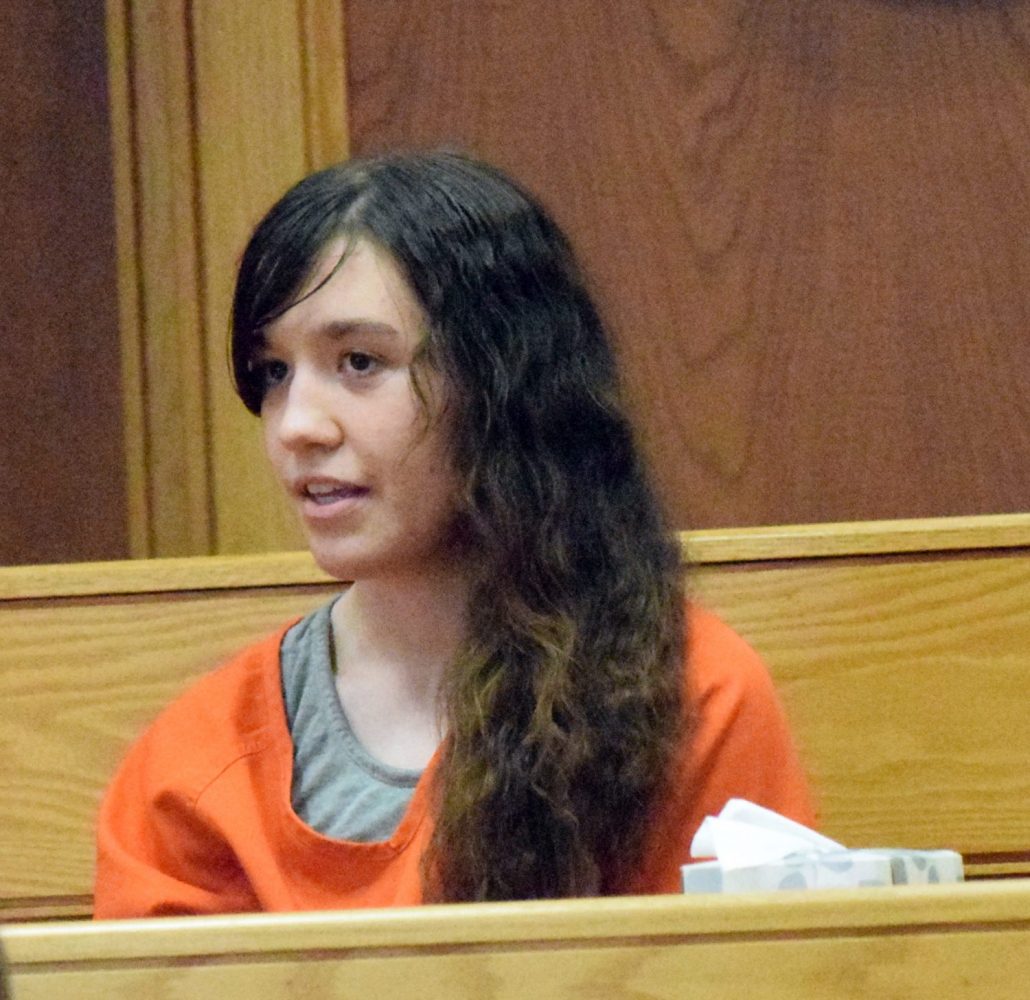Judge to rule on restitution in Ashlee Martinson homicide case

Ruling pending possible life insurance payout
BY KEVIN BONESKE
REPORTER/PHOTOGRAPHER
Ashlee Martinson returned Wednesday to Oneida County Circuit Court for a restitution hearing related to her conviction on two counts of second-degree intentional homicide.
Martinson, 18, is now serving a 23-year prison sentence in the Taycheedah Correctional Institution that was imposed June 10 for the March 7, 2015, deaths of her 37-year-old step-father, Thomas Ayers, who was shot twice with a 12-gauge shotgun, and her 40-year-old mother, Jennifer Ayers, who was stabbed more than 35 times, in their town of Piehl home.
Thomas Ayres’ sister, Sandy Rumore, who lives in Arizona and testified at the sentencing hearing in June but wasn’t present for Wednesday’s restitution hearing, has been taking care of three girls who had also lived at the residence prior to the deaths of Thomas and Jennifer Ayers and is seeking restitution.
Oneida County district attorney Michael W. Schiek presented arguments in favor of the approximately $10,000 sought in restitution. Among the most costly expenses he noted were more than $3,600 in funeral expenses, of which $2,000 was covered in a victim compensation fund, and more than $2,000 in attorney fees related to probate matters.
One of Martinson’s two attorneys who appeared in court, Thomas Wilmouth, argued against the amount of restitution sought by the district attorney.
Though Wilmouth conceded that just under $2,000, mostly for funeral expenses, would be reimbursable plus any county or state surcharge, he also asked Judge Michael H. Bloom to consider Martinson’s ability to pay restitution, for which the amount ordered could be reduced or no restitution could be required.

Ashlee Martinson enters Oneida County Circuit Court Branch II for a restitution hearing Wednesday related to her conviction on two counts of second-degree intentional homicide for the deaths of Thomas and Jennifer Ayers, her step-father and mother.
Wilmouth called Martinson to testify at the restitution hearing. She testified about presently going through a mental health assessment and being eligible to receive only $24 a months to buy personal items.
She said Wilmouth was holding around $300 for her to get supplies while at Taycheedah – money she earned by selling books to an inmate in the Oneida County Jail – and she presently wasn’t allowed to work in the state prison system.
When cross-examined by Schiek as to what she planned to do upon being released from prison and placed on extended supervision, Martinson said she didn’t know. Then when asked as to whether she would take a job if offered, she indicated she would.
Bloom also asked Martinson about her future employment, to which she noted she wanted to become a writer and has also thought about a career in cosmetology.
Though Bloom found that items such as funeral expenses and attorney fees could be reimbursable, while also determining Martinson’s financial resources to pay restitution in prison would be “minimal to the extent that they exist at all,” he announced he would be holding off making a final decision until the probate matter is resolved as to whether the estate of Thomas Ayres would be able to receive money from a life insurance policy, which could cover or exceed the amount of restitution sought.
Bloom also noted that surviving relatives of Jennifer Ayres were not seeking restitution on her behalf, so none would be ordered for her death.
Martinson agreed to waive the time limits for a final decision to be made on the restitution. Wilmouth then asked she be returned to the state prison system.
Leave a reply
You must be logged in to post a comment.





